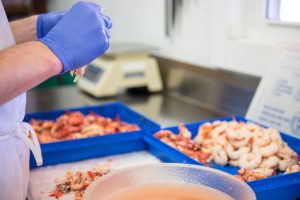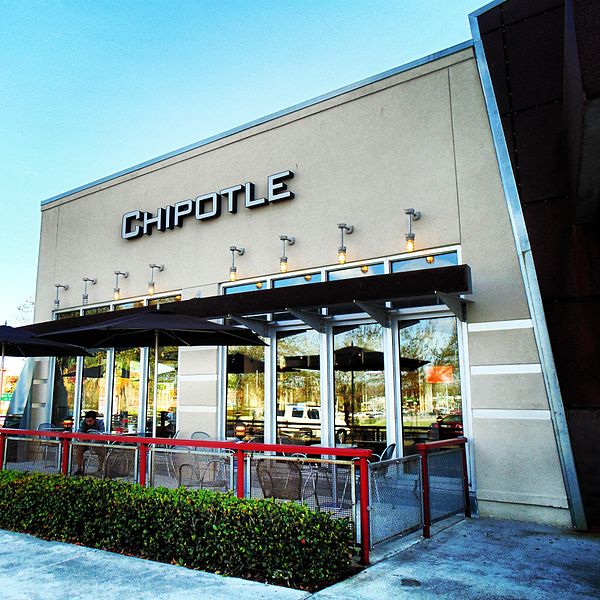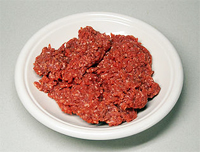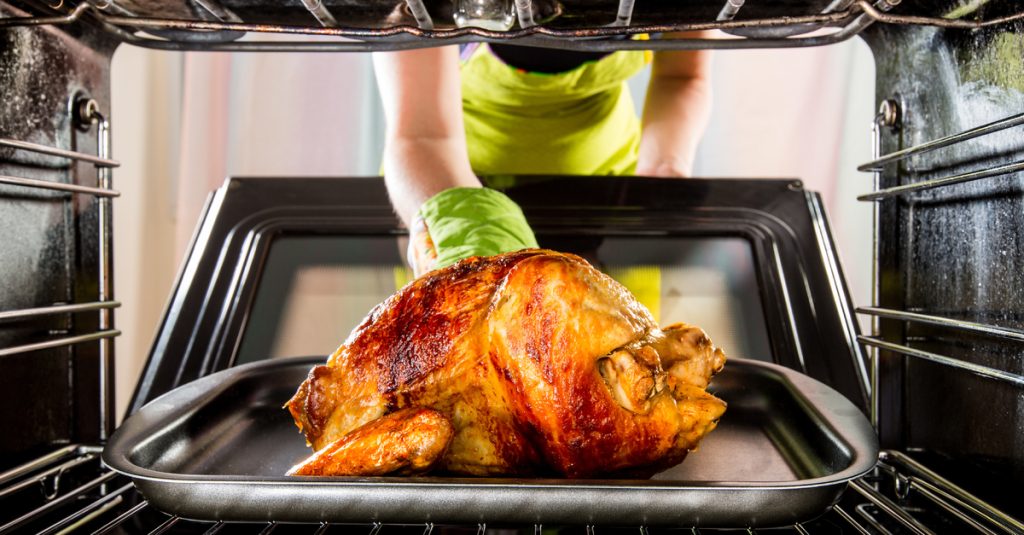Posts Tagged ‘“Boston food poisoning attorney”’
Check Food Recalls and Remember Food Safety This Thanksgiving
 Before you start cooking the biggest meal of the year, check the latest food recalls and come up with a plan for safe food preparation. With good planning, you can minimize the risk of food poisoning at your Thanksgiving table.
Before you start cooking the biggest meal of the year, check the latest food recalls and come up with a plan for safe food preparation. With good planning, you can minimize the risk of food poisoning at your Thanksgiving table.
Food Recalls: Romaine Lettuce
The Food and Drug Administration (FDA) and Centers for Disease Control and Prevention (CDC) are warning consumers to stay away from romaine lettuce contaminated by E. coli. This isn’t the first warning. This follows several romaine lettuce recalls in recent years – including last Thanksgiving (Source: Washington Post).
The current recall is for lettuce contaminated by an E.coli outbreak in Salinas, California. The CDC reports 40 people in 16 states have become ill due to the contamination. The CDC is urging consumers to throw all lettuce with labels which say it originated in Salinas. If you can’t find the growing area, consumers are advised not to eat the lettuce.
From Boston and across Massachusetts, many restaurants have posted advisories that they are not serving romaine lettuce.
Food Recalls: Raw Pork
Federal officials received an anonymous tip that Morris Meat Packaging of Illinois was producing food without federal safety inspection and on Saturdays, outside inspection hours. As a result, the company recalled 515,000 pounds of raw, intact pork products on Nov. 21, 2019. The United States Department of Agriculture’s Food Safety and Inspection Service is calling on consumers to look for EST. 18267 inside the USDA mark of inspection.
Food Recalls: Cheese Nips
Careful before you pick up that Cheese Nip. The parent company of Cheese Nips has issued a voluntary recall because yellow plastic pieces were found on manufacturing equipment. The source was a food scraper and the crackers were recalled to protect consumers from potential food poisoning. Consumers should look for – and not consume – 11-ounce Cheese Nips boxes with a best by date in May 2020. No injuries have been reported in connection to this recall.
Tips to Prevent Food Poisoning in Your Kitchen
Take care to use safe food handling practices when preparing your Thanksgiving meal.
Thaw your turkey in a container in the refrigerator; or in a sealed plastic bag in a sink of cold water (change water every 30 minutes) or in the microwave. Look up and follow instructions from the microwave manufacturer.
Clean, separate, cook and chill. Follow the four steps of food safety to prevent raw turkey from making contact with harmful bacteria. When you wash your hands, remember that germs that cause food poisoning can spread easily in your kitchen. Wash your hands for 20 seconds with soap and water before, during and after preparing and before eating.
Cook stuffing separately from the turkey, thoroughly to 165°F. Only then can the stuffing be cooked inside a turkey. This is a critical and fundamental step because bacteria can form and food poisoning can happen when stuffing is not completely cooked.
Give yourself adequate time to cook the turkey so your guests can safely consume it. The amount of time you need will depend on the weight and size of your turkey. The goal is to reach a safe internal temperature of 165°F. Check by inserting a food thermometer in multiple parts of the turkey, including in the center of the stuffing and the thickest parts of the breast, thigh and wing joint.
(Source: Food Safety Tips for Your Holiday Turkey)
After your Thanksgiving meal, remember to refrigerate leftovers soon (within 2 hours at the most is the CDC recommendation) to prevent food poisoning.
About Breakstone, White & Gluck – Boston Personal Injury Lawyers
Our Boston personal injury lawyers have over 100 years combined experience representing those who have been injured to the negligence and wrongdoing of someone else. If you have been injured, contact our attorneys for a free legal consultation: 800-379-1244 or 617-723-7676 or use our contact form.
After Food Poisoning Scare at Chicken & Rice Guys, Do You Know Your Rights When Dining Out?

Improper food preparation is one source of food poisoning.
Chicken & Rice Guys shutdown restaurants and food trucks in Boston and Medford earlier this month for more than a week, after 14 people became ill with E. coli. Ten people had to be hospitalized. Given the widespread food poisoning outbreak, it is likely that there will be liability claims against Chicken & Rice Guys for the poisonings.
According to The Boston Globe, the illness was caused by the Shiga toxin-producing Escherichia coli 0157:H7, the most common strain of E. coli in the United States. The Mayo Clinic reports a person can contract this type of E. coli through:
- Exposure to contaminated food, such as raw vegetables or undercooked ground beef
- Contact with an infected person
- Exposure to food which has not been properly handled
Symptoms typically occur within three or four days and can include severe abdominal cramps, diarrhea, vomiting and nausea. Younger children and older adults are the most vulnerable. In some cases, kidney failure can develop and be fatal.
According to news reports, the City of Boston Inspectional Services gave Chicken & Rice Guys approval to re-open its Boston restaurants. The Medford location is also back in business, but the five local food trucks remain closed.
Boston Food Poisoning Cases
Unfortunately, food poisoning is quite common. Each year, 1 in 6 Americans become sick after consuming contaminated food, according to the Centers for Disease Control and Prevention
When restaurants and food trucks are the cause, food poisoning can spread quickly. Remember the Boston College outbreak of 2015? More than 130 students fell ill after eating at the Chipotle Mexican Grille Restaurant in Cleveland Circle. The contamination was initially believed to be E. coli, because the Chipotle chain was in the middle of a nationwide E. coli food poisoning outbreak, which ultimately sickened 60 people in 14 states.
As it turned out, the Boston College students were suffering from norovirus. At least one student filed a lawsuit against the local Chipotle’s.
Your Legal Rights at Restaurants
Diners have rights when eating out. Restaurants and food trucks must follow health regulations set by their local community and the Commonwealth of Massachusetts. The most basic regulations include:
- Employees must wash their hands before handling food
- Meat should be cooked to the proper temperature.
- The restaurant should be kept clean.
If you see a restaurant violating a health regulation, you can alert the staff or ask to speak to the manager. You can also report it to the city’s local health department.
The City of Boston is now offering a great resource for consumers: a letter-grade system for Boston restaurants. Consumers can search the grades online. At some point, restaurants will be required to post grades on storefronts or face fines of $300 per day.
If You Suffer Food Poisoning, Contact a Boston Personal Injury Lawyer
If you suffer food poisoning after eating at a restaurant, you may be entitled to file a claim for negligence and obtain financial compensation. Contact the lawyers of Breakstone, White & Gluck in Boston to help you investigate, determine if you have a case and identify who may be liable for your injuries. There are several parties who may be responsible, including the restaurant, food truck, food distributors and food manufacturers.
For a free legal consultation, contact Breakstone, White & Gluck at 617-723-7676 or 800-379-1244 or use our contact form.
What to Know About Food Poisoning After the Chipotle Restaurant Norovirus Outbreak
 The Chipotle Mexican Grill in Cleveland Circle in Brighton remains closed after a norovirus outbreak, which has reportedly sickened more than 120 Boston College students.
The Chipotle Mexican Grill in Cleveland Circle in Brighton remains closed after a norovirus outbreak, which has reportedly sickened more than 120 Boston College students.
Most of us eat at restaurants and trust they are safe. But there are hidden risks for food-borne illnesses and food poisoning, such as unsafe handling of food, not keeping the premises clean, and allowing sick employees to work. While some illnesses pass in a day or two, others are more serious and results in visits to the ER, hospitalization and even death.
If you suspect food poisoning, it is important to visit a doctor and depending on the length and severity of your symptoms, consult an attorney about your legal rights.
The Chipotle Boston Case
Chipotle restaurants in the northwest and Maryland have recently been linked to 52 cases of E. Coli food poisoning. But the City of Boston’s initial testing showed the presence of norovirus at the Chipotle in Brighton.
The Brighton restaurant closed Monday after Boston College reported 30 students, including members of the men’s basketball team, became sick after eating there. A college spokesman has since raised the number to more than 120 students. City inspectors have cited Chipotle with three violations, including allowing a sick employee to work a few days prior to the outbreak and cooking chicken and steak below the required temperature of 140 degrees.
Norovirus causes acute gastroenteritis, the inflammation of the stomach or intestines or both. Symptoms include stomach pain and cramping, diarrhea, vomiting and headaches. E. Coli can have similar symptoms, but norovirus is a viral infection and cannot be treated with antibiotics. Doctors often encourage those who are infected to drink plenty of fluids as they recover to prevent dehydration. Norovirus is not typically fatal.
Boston College has tested its students for both E. Coli and norovirus, but test results have not been released publicly.
What to Know About Food Poisoning, Medical Care and Your Legal Rights
Food poisoning is more common than many realize. Each year, 48 million (or 1 in 6) Americans suffer some form of food poisoning, according to the Centers for Disease Control and Prevention (CDC). While some cases make the news, many do not, even though 128,000 people are hospitalized and 3,000 die each year from foodborne illness.
How Common is Norovirus?
Each year, 19 to 21 million people in the U.S. suffer norovirus, according to the CDC. Doctors treat nearly 2 million people as outpatients and another 400,000 people have to seek care from hospital emergency rooms.
How Long Will Norovirus Symptoms Last?
Symptoms often appear after one or two days and individuals may be sick for two to four days.
Where is Norovirus a Risk?
You can contract norovirus by contact with an infected person, touching infected surfaces or when an infected person handles food. It is airborne and can stick to surfaces. Because of this, norovirus can spread quickly in places where large numbers of people gather and pass through, such as restaurants, schools and daycare centers.
Last spring, more than 200 people contracted norovirus on two Royal Caribbean cruise ships.
Can I Sue for Food Poisoning and Norovirus?
As with any injury caused by someone else’s negligence, you may be able to file a lawsuit if you suffered food poisoning. But you should consult an experienced personal injury attorney to advise you on the law and your specific circumstances.
Read More
Preventing Food Poisoning After Ground Beef Recall
 A Northeastern grocery store chain has recalled various packages of ground beef after 14 people have been infected with an antibiotic-resistant strain of Salmonella.
A Northeastern grocery store chain has recalled various packages of ground beef after 14 people have been infected with an antibiotic-resistant strain of Salmonella.
Hannaford, of Scarborough, Maine, issued the voluntary recall Thursday, Dec. 15, for an undetermined amount of fresh ground beef that may be contaminated with Salmonella Typhimurium. This strain of Salmonella is resistant to treatment by many antibiotics, including drug classes such as beta-lactams and aminoglycosides. Seven of the 14 people who suffered food poisoning were hospitalized.
The United States Department of Agriculture (USDA) has classified the recall Class 1 with a high health risk. This classification means there is a reasonable probability that use of a product will cause serious, adverse health consequences or death.
The grocer recalled 10 different types of ground beef, ranging from 73 percent to 90 percent. Hannaford said most of the affected individuals had consumed 85 percent. The affected packages have the sell-by date of Dec. 17, 2011 or earlier. They were sold at Hannaford stores in Massachusetts, Maine, New Hampshire, New York and Vermont. Hannaford is offering consumers a full refund.
The ground beef involved in the food poisoning outbreak was sold under the brand names of Hannaford, Taste of Inspirations and Nature’s Place.
The USDA is reminding consumers to check their freezers as well as refrigerators as it continues to investigate.
The USDA said Hannaford kept limited records regarding the source of the ground beef and it is unable to determine the responsible supplier. The government agency said it will pursue rulemaking to address this problem in the future.
Salmonella is one of the most common bacterial foodborne illnesses. It can be life-threatening in individuals with weak immune systems, such as the elderly. Common symptoms include diarrhea, abdominal cramps, fever, headache, chills, nausea and vomiting. The food poisoning symptoms can start within 12 to 72 hours of food consumption and last up to seven days.
Preventing Salmonella
The USDA advises consumers to take special care in handling ground beef to avoid Salmonella.
Wash Your Hands. Consumers are urged to wash their hands with warm, soapy water for at least 20 seconds before and after handling food.
Separate. Keep raw meat, fish and poultry away from other foods that will not be cooked. Use separate cutting boards for different meats and egg products.
Cook Properly. Cook meat to safe internal temperatures. The safe internal temperature for beef and pork is 160 degrees Fahrenheit and 165 degrees for poultry. Use a food thermometer to check.
Refrigerate Immediately. Refrigerate raw meat and poultry within two hours of purchase or one hour if kept in temperatures of 90 degrees or greater.
Click here to read the full USDA notice on the Hannaford Ground Beef Recall.
Read More


